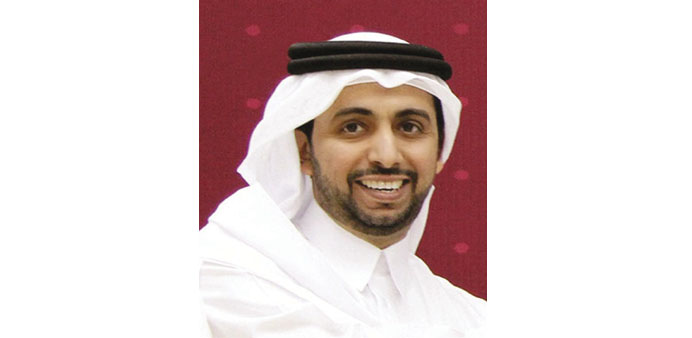Peter Alagos
|
|
Qatar University’s Gas Processing Centre (GPC) is working on a project that aims to capture carbon mainly from industrial and natural gas streams.
University vice president for research Dr Hassan al-Derham said the project was aimed at steering the country away from being a carbon-based economy.
Qatar is said to have the “highest per-capita emission” of carbon dioxide in the world.
Al-Derham said the GPC Carbon Capture and Management (CCM) team was developing a series of technologies for carbon dioxide capture, which focused mainly on liquid solvent and solid sorbents as well as catalytic conversion technologies.
The GPC is adopting a CCM research programme based on the previously developed GPC Technology Roadmap (TRM), which identified promising directions for research at the CCM.
The project, which mainly involves GPC director Dr Mohamed Jaber al-Mari, is expected to help achieve the Qatar National Vision 2030 by transforming the country from a carbon based economy into a knowledge-based one.
“We need to be the frontiers for this as a national university in order to move the society into this direction,” al-Derham told Gulf Times.
Prof Mahmoud Khader, who is leading the solid sorbent research team, said carbon dioxide was a major environmental hazard and noted that Qatar had the highest per-capita emission of carbon dioxide in the world.
Khader emphasised that preventing carbon dioxide from being released into the atmosphere “would be a major achievement”.
Dr Abdelbaki Benamour, who leads the liquid solvent technology research team, said the project was in tandem with national environmental policies with the Ministry of Environment as a member of a consortium created by the GPC.
Al-Derham underlined the role of academics in steering the country away from being a carbon-based economy by investing on research and development (R&D) projects “in order to transfer ideas into something tangible that society can feel”.
He pointed out that academia could help identify problems and challenges in order for government to address the issues at an international level through best practices and the latest technologies available in the market.
“By doing this, we can provide society with answers or solutions that can gradually build new ideas or initiatives that can sustain by its own without the support of the oil and gas sector.”
Al-Derham also pointed out that it was “a very wise decision by the leadership” to invest 2.8% of Qatar’s GDP on research and development (R&D) activities.
“All advanced and developed economies and countries nowadays are investing a lot of their budget and resources towards R&D.”
He described the move as both an “ambitious plan” and a “very good commitment”, and stressed that its benefits had been reflected positively on Qatar’s education sector through enhanced teaching methodologies and the quality of the country’s graduates.
Al-Derham added that “spinoff” companies had been collaborating with QU in transforming the youth to become successful entrepreneurs, “which could set as an example for others to follow”.

